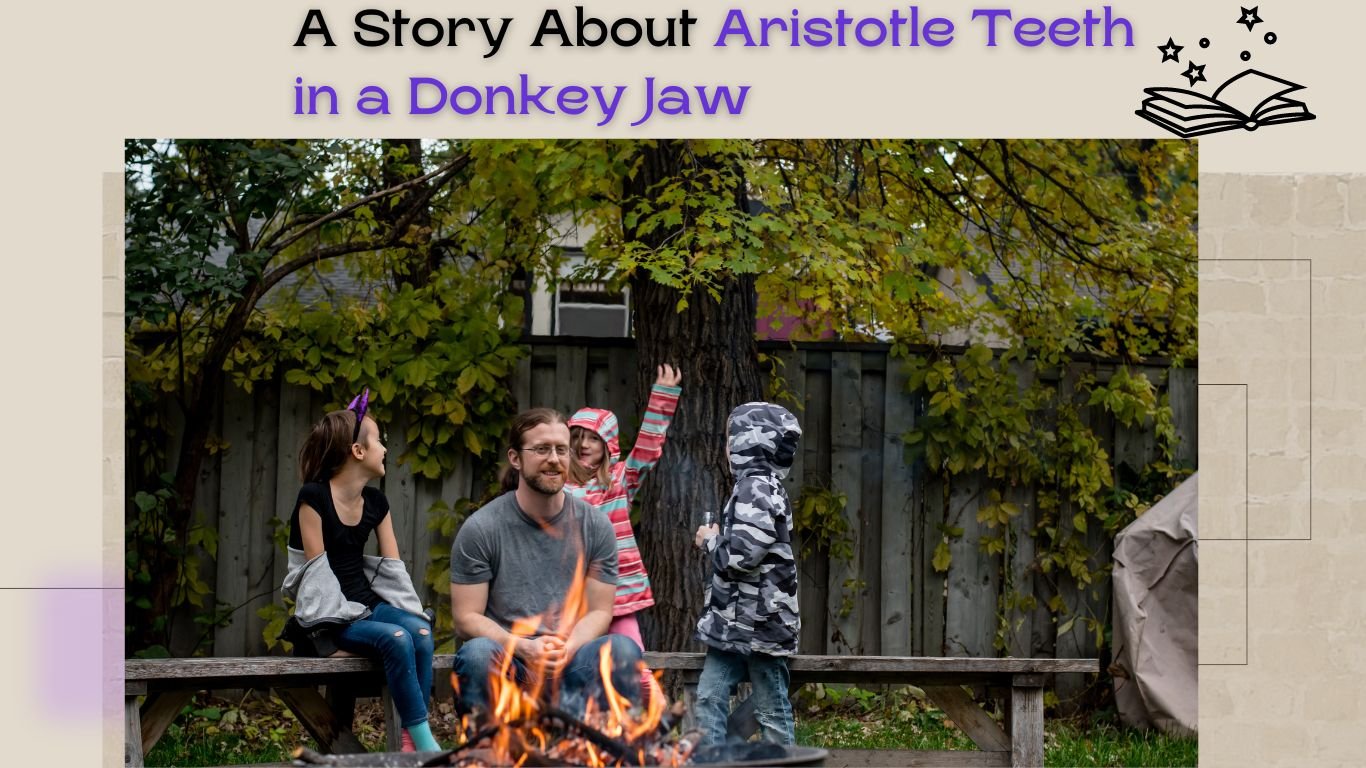Aristotle Teeth in a Donkey Jaw: Exploring an Interesting Story

Aristotle was a famous Greek philosopher who lived a long time ago. He made significant contributions to science, philosophy, and logic; his work is still essential today. However, a lesser-known story about him includes the phrase, “Aristotle teeth in a donkey jaw.” This story might initially sound strange, but it has engaging lessons for us.
This article will explore what “Aristotle teeth in a donkey jaw” means, where the story comes from, and what it teaches us about knowledge, curiosity, and critical thinking.
Who Was Aristotle?
Before we dive into the story of “Aristotle’s teeth in a donkey jaw,” let’s first understand who Aristotle was. Aristotle was born in 384 BC in a city called Stagira in ancient Greece. He became one of the most influential philosophers in history. He studied many subjects, including biology, physics, logic, and politics. Aristotle was a student of another great philosopher, Plato, and later became a teacher. One of his most famous students was Alexander the Great.
Aristotle’s work helped shape the way people think about the world. He believed in observing nature closely and using evidence to understand how things work. His methods laid the foundation for modern science. But how does “Aristotle teeth in a donkey jaw” fit into all this?
The Story of “Aristotle Teeth in a Donkey Jaw”
“Aristotle teeth in a donkey jaw” comes from an ancient tale. In this story, Aristotle once found a donkey’s jawbone. Upon closer inspection, he noticed something peculiar: the teeth of the donkey were worn down in a specific way. As a curious thinker, Aristotle wanted to understand why the teeth were like that. He didn’t just accept things as they were; he wanted answers.
Aristotle’s curiosity about the teeth in a donkey’s jaw was not just about the donkey itself. It symbolized his way of thinking. He believed we should always question the world, seek explanations, and never stop learning. This story shows that Aristotle applied his philosophical approach to everyday things, such as the teeth in a donkey’s jaw.
As we discuss this story, we’ll use the phrase “Aristotle teeth in a donkey jaw” to explain its more profound lessons.
Curiosity and Critical Thinking
The story of “Aristotle Teeth in a Donkey Jaw” highlights Aristotle’s two essential qualities: curiosity and critical thinking. Curiosity is when you are eager to learn about something new, and critical thinking is the ability to analyze and evaluate information carefully.
When Aristotle examined the teeth in the donkey’s jaw, he was not just looking for a simple answer. He wanted to know why the teeth were shaped the way they were. This curiosity drives people to explore the world, discover new things, and make significant advances in knowledge.
In the case of “Aristotle Teeth in a Donkey Jaw,” the philosopher demonstrated that curiosity should not be limited to significant or essential things. Even something as small and every day as a donkey’s jawbone can teach us something valuable. This shows us that we should always be open to learning, no matter the subject.
Learning from Everyday Things
Another lesson from the story “Aristotle Teeth in a Donkey Jaw” is that we can learn from everyday things. Aristotle was not afraid to study things others might overlook, such as the teeth in a donkey’s jaw. He knew knowledge could be found everywhere, not just in books or classrooms.
Today, we can apply this lesson by staying curious about the world. There is always something new, whether learning about nature, people, or technology. Just as Aristotle found meaning in a donkey’s teeth, we, too, can find valuable lessons in what we see daily.
The Importance of Observation
The phrase “Aristotle teeth in a donkey jaw” also teaches us the importance of observation. Aristotle was known for his careful observations of nature. He believed that we could better understand how things work by closely observing the world around us.
FOR MORE BLOGS PLEASE CLICK LOGICALBLOGS.
When Aristotle looked at the donkey’s jawbone, he paid close attention to the details. He didn’t just glance at it and move on. Instead, he studied it carefully and used his observations to ask more profound questions. This method of careful observation is still used today in science and research.
For example, scientists use observation to study animals, plants, and the human body. They can discover new information and make significant advances in medicine, technology, and other fields by paying attention to the details.
The Power of Asking Questions
One of the most important lessons from “Aristotle Teeth in a Donkey Jaw” is the power of asking questions. Aristotle didn’t just accept things as they were. He always wanted to know more. He believed that asking questions is the key to gaining knowledge.
In the case of the donkey’s jaw, Aristotle asked why the teeth were shaped the way they were. This question led him to learn more about how animals eat and live. Asking questions is a powerful tool that helps us solve problems, learn new things, and make better decisions.
Today, we can follow Aristotle’s example by asking questions about the world around us. Whether at school, at home, or at work, asking questions can help us understand things better and make informed choices.
The Relevance of “Aristotle Teeth in a Donkey Jaw” Today
The phrase “Aristotle teeth in a donkey jaw” still matters today. Even though Aristotle lived over 2,000 years ago, his thinking is still relevant. His emphasis on curiosity, observation, and critical thinking is just as significant now as it was back then.
In today’s world, we are surrounded by new information and technology. With so much to learn and discover, staying curious and asking questions is important. Just like Aristotle studied the teeth in a donkey’s jaw, we can look at the world around us and ask how and why things work the way they do.
Whether learning about science, history, or everyday life, we can use the lessons from “Aristotle Teeth in a Donkey Jaw” to guide our thinking. By staying curious, observing, and asking questions, we can continue to grow and learn.
Conclusion
The story of “Aristotle teeth in a donkey jaw” might initially seem unusual, but it carries important lessons about curiosity, observation, and critical thinking. One of the greatest philosophers in history, Aristotle, showed us that even something as simple as a donkey’s teeth can lead to deeper understanding and knowledge.
Aristotle carefully studied the world around him and demonstrated that learning is a lifelong journey. His curiosity and willingness to ask questions helped him make important discoveries that still influence us today. By following his example, we can stay curious, ask questions, and continue learning from the world.
Remember, the next time you encounter something new or unusual, think of “Aristotle teeth in a donkey jaw” and ask yourself: What can I learn from this?





